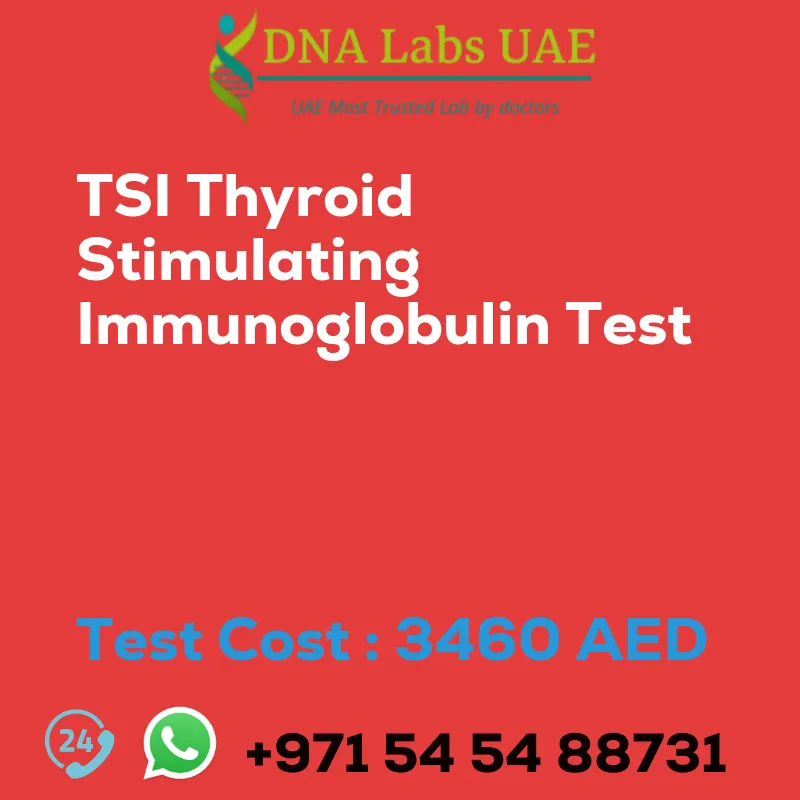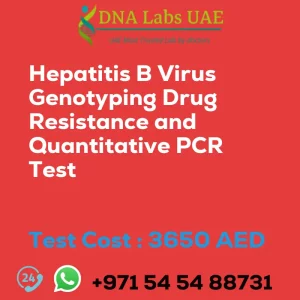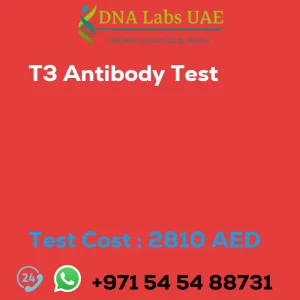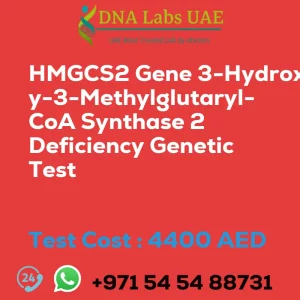TSI THYROID STIMULATING IMMUNOGLOBULIN Test
Test Name: TSI THYROID STIMULATING IMMUNOGLOBULIN Test
Components: Price: 3460.0 AED
Sample Condition: 2 mL (1 mL min.) serum from 1 SST. Ship refrigerated or frozen. Duly filled Test Send Out Consent Form is mandatory.
Report Delivery: Sample by 7th of the month; Report after 2-3 weeks
Method: In vitro Bioassay
Test Type: Disorders of Thyroid gland
Doctor: Endocrinologist
Test Department: OS
Pre Test Information: Duly filled Test Send Out Consent Form is mandatory.
Test Details
The TSI (Thyroid Stimulating Immunoglobulin) test is a blood test used to diagnose and monitor Graves’ disease, an autoimmune disorder that affects the thyroid gland. TSI is an antibody produced by the immune system that stimulates the thyroid gland to produce excessive amounts of thyroid hormone. In Graves’ disease, the immune system mistakenly attacks the thyroid gland, leading to an overactive thyroid (hyperthyroidism).
The TSI test measures the levels of TSI antibodies in the blood. A positive TSI test result indicates the presence of these antibodies, which confirms the diagnosis of Graves’ disease. The test is also used to monitor the effectiveness of treatment for Graves’ disease and to assess the risk of relapse.
A TSI test is typically ordered when a person presents with symptoms of hyperthyroidism, such as rapid heartbeat, weight loss, tremors, anxiety, and increased sensitivity to heat. It is also ordered when a person has a family history of Graves’ disease or if there are abnormal thyroid hormone levels detected in routine blood tests.
The TSI test is performed by drawing a blood sample from a vein in the arm. The sample is then sent to a laboratory for analysis. Results are usually available within a few days.
It is important to note that the TSI test is specific to Graves’ disease and cannot be used to diagnose other causes of hyperthyroidism, such as a thyroid nodule or inflammation of the thyroid gland.
Overall, the TSI test is a valuable tool in the diagnosis and management of Graves’ disease, helping healthcare providers determine the appropriate treatment plan for individuals with this condition.
| Test Name | TSI THYROID STIMULATING IMMUNOGLOBULIN Test |
|---|---|
| Components | |
| Price | 3460.0 AED |
| Sample Condition | 2 mL (1 mL min.) serum from 1 SST. Shiprefrigeratedorfrozen. Duly filled Test Send Out Consent Formis mandatory. |
| Report Delivery | Sampleby7thofthemonth;Report after2??3weeks |
| Method | In vitro Bioassay |
| Test type | Disorders of Thyroid gland |
| Doctor | Endocrinologist |
| Test Department: | OS |
| Pre Test Information | Duly filled Test Send Out Consent Formis mandatory. |
| Test Details |
The TSI (Thyroid Stimulating Immunoglobulin) test is a blood test used to diagnose and monitor Graves’ disease, an autoimmune disorder that affects the thyroid gland. TSI is an antibody produced by the immune system that stimulates the thyroid gland to produce excessive amounts of thyroid hormone. In Graves’ disease, the immune system mistakenly attacks the thyroid gland, leading to an overactive thyroid (hyperthyroidism). The TSI test measures the levels of TSI antibodies in the blood. A positive TSI test result indicates the presence of these antibodies, which confirms the diagnosis of Graves’ disease. The test is also used to monitor the effectiveness of treatment for Graves’ disease and to assess the risk of relapse. A TSI test is typically ordered when a person presents with symptoms of hyperthyroidism, such as rapid heartbeat, weight loss, tremors, anxiety, and increased sensitivity to heat. It is also ordered when a person has a family history of Graves’ disease or if there are abnormal thyroid hormone levels detected in routine blood tests. The TSI test is performed by drawing a blood sample from a vein in the arm. The sample is then sent to a laboratory for analysis. Results are usually available within a few days. It is important to note that the TSI test is specific to Graves’ disease and cannot be used to diagnose other causes of hyperthyroidism, such as a thyroid nodule or inflammation of the thyroid gland. Overall, the TSI test is a valuable tool in the diagnosis and management of Graves’ disease, helping healthcare providers determine the appropriate treatment plan for individuals with this condition. |








